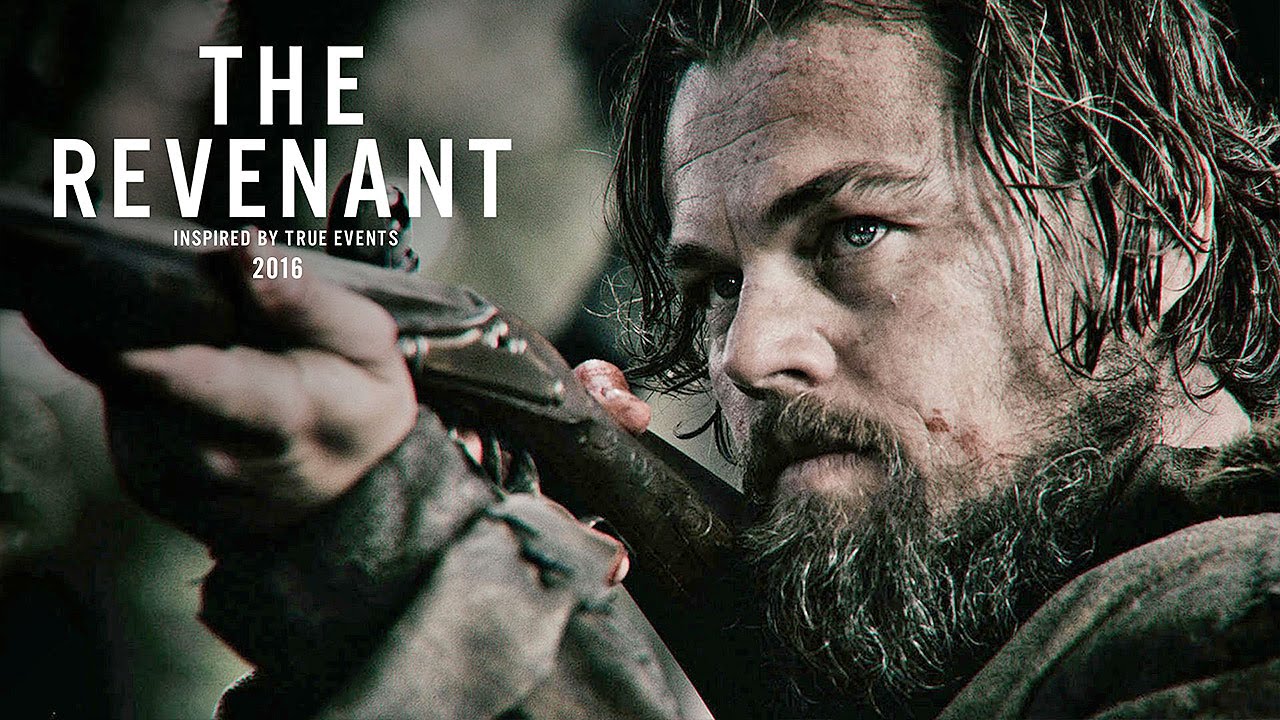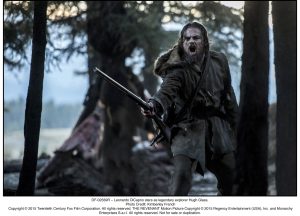The Revenant (2015)
- fanmovies
- November 5, 2024

The Revenant (2015), directed by Alejandro González Iñárritu, is an intense, survivalist Western drama inspired by true events. The film is set in the American wilderness during the early 19th century and stars Leonardo DiCaprio as Hugh Glass, a frontiersman and fur trapper who, after being brutally mauled by a bear, is left for dead by his comrades. His quest for survival and revenge drives the story forward in a raw and visceral depiction of human endurance and willpower.
Plot Summary
The story revolves around Glass, a member of a fur-trapping expedition. While on the journey, he is viciously attacked by a grizzly bear, leaving him severely injured. Believing him beyond saving, his companions, led by John Fitzgerald (Tom Hardy), decide to abandon him, with Fitzgerald ultimately killing Glass’s son in an attempt to hasten his demise. Left for dead, Glass clings to life, fueled by a desire for revenge. His arduous journey through the harsh wilderness, facing starvation, extreme cold, and hostile Native American tribes, becomes a testament to his resilience and determination to survive and seek justice.
Cinematography and Direction
The Revenant is celebrated for its breathtaking cinematography, led by Emmanuel Lubezki, who won an Academy Award for his work on the film. Lubezki uses natural lighting, capturing stunning, unfiltered images of the untamed landscapes. The camera movements create a sense of immersion, often following Glass in single, unbroken takes that heighten the feeling of realism. Iñárritu’s direction focuses on the brutal and beautiful aspects of nature, portraying the wilderness as a character itself—unforgiving yet mesmerizing.
Themes
Central to the story are themes of survival, revenge, and redemption. The film explores the primal instincts that drive Glass to continue living despite insurmountable odds. His journey is both physical and spiritual, testing his limits and delving into his connection with nature, as well as his past traumas and losses. There is a strong emphasis on the human struggle against the elements, and the moral complexities of vengeance.
Performances
Leonardo DiCaprio’s performance as Hugh Glass is transformative and earned him his first Academy Award for Best Actor. DiCaprio committed to intense physicality in his role, including enduring freezing temperatures and consuming raw bison liver to authentically portray his character’s survival experience. Tom Hardy delivers a formidable performance as the antagonist Fitzgerald, portraying him as a desperate and self-serving man with his own set of moral codes.
Sound Design and Score
The sound design in The Revenant adds to the immersive experience, with ambient sounds of nature—such as the rustling of leaves and the crunch of snow—enhancing the atmosphere. The film’s score, composed by Ryuichi Sakamoto and Alva Noto, is haunting and minimal, complementing the stark visuals and emotional intensity without overwhelming the scenes.
Critical Reception
The Revenant received widespread acclaim for its technical achievements, particularly in cinematography and direction. However, some critics found the storyline to be simplistic and driven more by spectacle than by depth in its narrative. Despite this, the film’s visual and emotional intensity captivated audiences, solidifying it as a modern epic in cinema.
Conclusion
The Revenant is a harrowing and powerful tale of survival that showcases the extremes of human endurance and the unforgiving nature of the wilderness. With its outstanding cinematography, remarkable performances, and visceral storytelling, the film has left a lasting impact on audiences and is regarded as a cinematic achievement in capturing the brutality and beauty of survival. It’s a must-watch for those who appreciate intense, immersive storytelling combined with stunning visual artistry.











